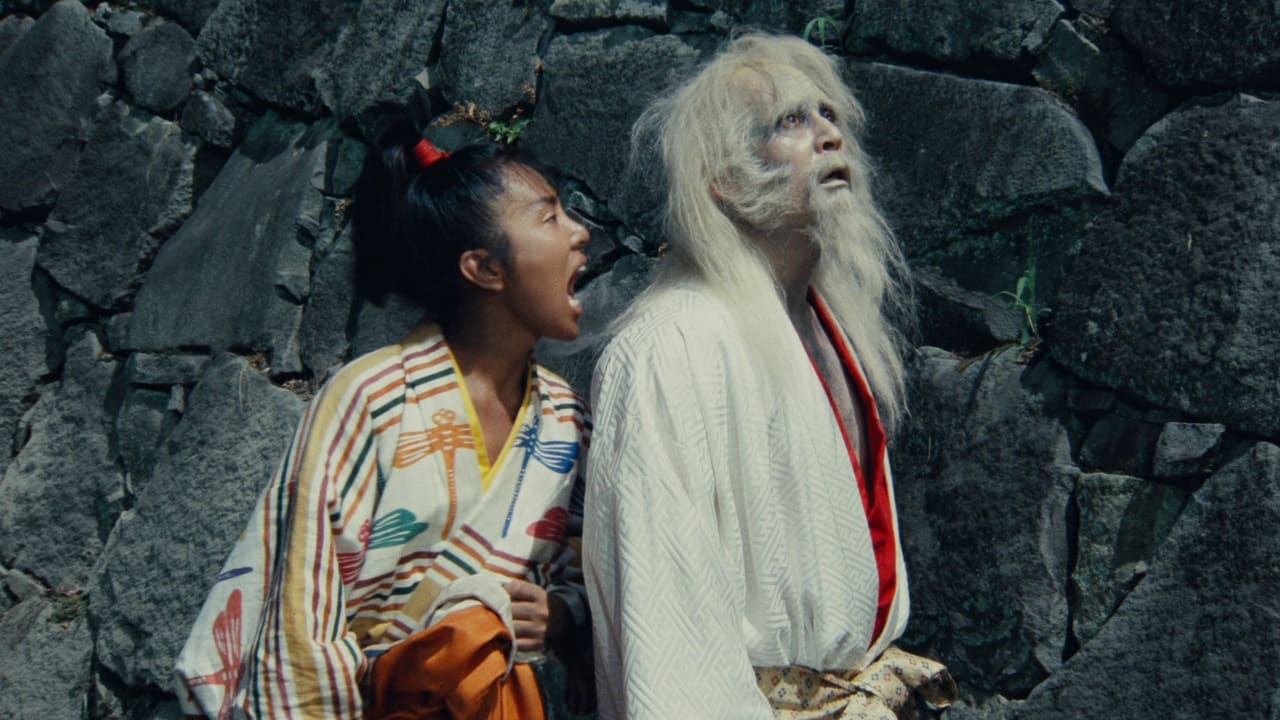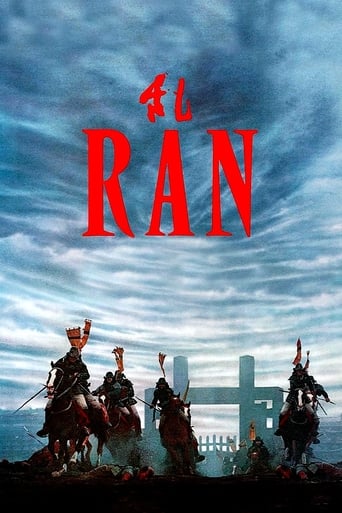

One of Kurosawa's best, "Ran" is a story set on samurai era Japan that touches on different subjects, as for example family, power, revenge or betrayal, delivering a powerful movie that will stay for a long time with the viewer.Old Lord Hidetora Ichimonji is getting old and, when a couple of lords come to ask for his third son to marry one of the lord's daughters, Hidetora decides it is time to retire. He will divide his territories between his three sons and retire, even though he will keep his title and some power. The youngest, Saburo is against this decision, but the older two brothers are really happy with their father's decision and promise to take care of him. Saburo is sent away, stripped from all of his possessions and Hidetora starts his new life.What follows is a story of hate, betrayal, desire, corruption... You know, the stuff of great stories. The two older brothers start to plot against each other and against their father, the wife of the older brother too, Saburo just seems to worry about his father... There are a lot of threads but Kurosawa does an amazing job in threading them and keep the plot advancing while making things more and more interesting. The plot is full of nice twists and touches, and the characters are well rounded, their behavior and decisions well justified and presented. Kurosawa was a great director, and every frame of this movie is a clear example of his touch. Everything is really great, from the music to the palette of color, and even the use of the scenery is also top notch.Totally worth seeing, "Ran" is a movie about the dangers of power. Any kind of.
... View MoreI own over 1,500 movies and "Ran" is in my top ten favorites. Akira Kurosawa is probably the greatest director of all time and it shows in this epic, masterpiece of a movie.I was appalled by some of the bad reviews by other reviewers. I'm sure these people would find a way to criticize the Mona Lisa.
... View MoreHidetora Ichimonji, a powerful warlord, experiences a dream reminding him that he's showing his age and decides to divide his kingdom among his three sons: Taro, Jiro, and Saburo. Taro, the eldest, will receive the prestigious First Castle and become leader of the Ichimonji clan, while Jiro and Saburo will be given the Second and Third Castles. Hidetora will retain the title of Great Lord and Jiro and Saburo are to support Taro.Hidetora lectures them on the importance of unity by showing them that one arrow is fragile, but three arrows held together are much harder to break. However, Saburo breaks the three arrows across his knee and calls the lecture stupid, pointing out that Hidetora foolishly expects his sons to be loyal to him, while he himself has used the most ruthless methods to attain power. Hidetora mistakes these comments for a threat, and when his servant Tango comes to Saburo's defense, he banishes both men. Fujimaki, a warlord who had witnessed these events, and been impressed by Saburo's frankness, invites him to his dominion and offers him his daughter's hand in marriage.
... View MoreIt is not uncommon for an artist's output to wane a little in age. Not so with Akira Kurosawa. Even in his late period, his work continued to be inspired and masterful. Ran (1985) is the most regarded of these late works, a ravishingly beautiful and yet bleak adaptation of Shakespeare's King Lear.The Noh-influenced performances and choice to transpose Willy Shakes to 16th century Japan recall Kurosawa's earlier Throne of Blood (1958), which told the story of Macbeth; however, this film is far more downbeat. In Throne of Blood, the tyrant-protagonist is taken down by the people. Though the cycle of violence will go on as long as greed and ambition live within mankind, there is hope that they will always be taken down. But here? Ran is so much more tragic in its view of people and the human condition.As Renoir once said, everyone has their reasons. Here, there really aren't any white or black hats. The treacherous Lady Kaede is a victim of Lord Hideotara, who had killed her entire family. The tragic Hideotora has killed many innocents in his quest for power, yet we still pity his fate and ultimate inability to live peacefully with his sons in his advanced years.From the boar hunt in the beginning to the film's haunting closing image of the blind man on the edge of a cliff, Ran is a nearly three hour movie that doesn't feel its length for a moment. It is perhaps Kurosawa's final bonafide masterpiece, but that is arguable. It's much harder to argue this one is anything less than great.
... View More